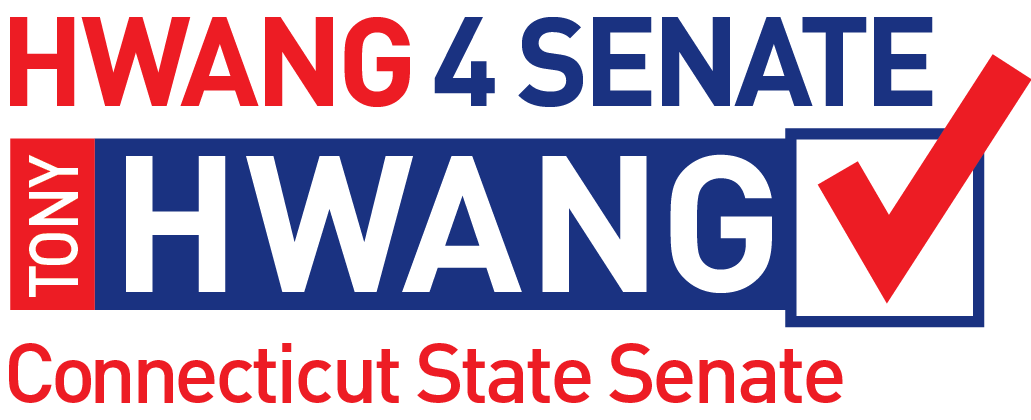- Association Health Plans
The state legislature’s failed to advance a proposal I co-sponsored which offered healthcare cost relief for struggling non-profits and small businesses in Connecticut. Almost every day, I hear from Connecticut small businesses, nonprofits, and families concerned about the rising cost of health care. We had a golden opportunity to do something about health care unaffordability this year, and we failed. There’s no other way to describe it.
H.B. 6710 sought to allow small employers to pool together to jointly purchase large group health insurance plans directly from a carrier, making health insurance more affordable and accessible. The bill also sought to allow trade and industry associations of significant scale to offer self-funded insurance plans regulated by the Connecticut Insurance Department and subject to the Affordable Care Act’s 10 essential health benefits and state-mandated benefits. It would therefore prohibit discrimination, stating that the association self-funded plans “shall provide coverage for essential health benefits as defined in the Affordable Care Act”, such as pre-existing conditions. This idea had broad-based, bipartisan, and bicameral – support. Organizations supporting H.B. 6710 include:— The Connecticut Business and Industry Association (CBIA)
— The Credit Union League of Connecticut
— The Connecticut Community Nonprofit Alliance
— National Federation of Independent Business
— Connecticut Restaurant Association
— Connecticut Brewers Guild
— Greater Danbury Chamber of Commerce
— Greater New Haven Chamber of Commerce
— Greater Valley Chamber of Commerce
— Greater Waterbury Chamber of CommerceBruce Adams, president of the Credit Union League of Connecticut, which counts about 60 member organizations, said association health plans would open up more affordable options for many organizations. “If our 60 members all signed on to one plan, we would have a couple thousand people in our group, so clearly we could obtain health insurance at a cheaper rate,” Adams said.
The cost of health care is anything but affordable, and this bill represented potential relief for middle-class Connecticut families. It’s failure to be advanced represents a missed opportunity. It really is unfortunate that we couldn’t get this across the finish line, but we will definitely re-introduce this commonsense policy.
- Premium relief
During this past decade, Connecticut Senate Republicans have not just said ‘no’ to the majority. We have proposed thoughtful alternatives and vetted solutions to demonstrate that there is a better way to reduce health care costs while increasing quality and access of care. Repeatedly, we have sought to enable insurance carriers to reduce premiums by 30 percent. So, instead of rates potentially going up by 15 percent this year, they could be going down by 30 percent. That amounts to what could have been a potential 45 percent swing in favor of ratepayers had our Senate Republican ideas been adopted.
- Benchmarking
Benchmarking simplified is data collection. It is a process in which we are looking at all costs of healthcare, and collecting data to give us some idea of what are the causes of the cost, and then how we proceed to address it and reduce it. I want to compliment the governor’s office in collaboration with the Senate Republicans. Benchmarking has been a discussion for the past three or four years. The governor initially put it in his 2020 executive order. We codified in a bipartisan effort. Benchmarking data came out this year. The governor had a goal of increasing costs across the board for about 3%. The real number came closer to 7%. That’s a big gap. It’s even a bigger number when you look at commercial spending, which is the private and the self-insured marketplace. That grew at 18.8%. And what that tells you is everybody you talk up and down Main Street understands that healthcare is unaffordable.
Our insurers are world renowned. They’re the best of the world in that arena. But could they do better? Absolutely. And what we have is a lack of transparency in how they do their business. If you’re telling me you need rate increases, but at the same time, you’re rewarding your senior executives millions of dollars, there’s an inconsistency and a tone deafness. - Pharmacy Benefit Managers and Prescription Drugs
We have innovative pharmaceutical companies in Connecticut which are economic drivers and a source of state pride. But in that food chain, you have benefit managers, so that adds a cost. It’s a middle management layer. Pharmacy benefit managers, acronym PBMs, are the middle players. They get rebates. They have price spreading. Pharmaceutical companies give out billions and billions of dollars in coupons and rebates and our PBMs then pocket the difference. And where is that savings to the consumer? When you have people with $2,000 of prescription bills that need to meet on a monthly basis, it’s unaffordable, it’s unsustainable. You have to choose between your health or putting food on the table. That’s not a decision anyone should make.
The Senate Republicans have proposed bills relating to PBMs. Understanding the spread pricing and the couponing and rebate, and also asking our pharmaceutical companies how we can incorporate generics, but at the same time reimbursing them for the research and development that they have put in to create incredible medicines to save lives and make differences. So it’s a delicate balance. - A Multi-faceted Approach to Cutting CostsThe good news is that this year, legislation I co-introduced which aims to bring down health care costs and curb the rising cost of prescription drugs was passed into law this year. The legislation will:
Create a Drug Discount Card Program to allow the Comptroller to establish a discount card and incorporate regional consortium to pool prescription drug purchasing power.
Increase Transparency for High-Cost Drug Increases. The Office of Health Strategy’s (OHS) annual drug reporting requirement thresholds will be updated to ensure enhanced scrutiny of costs. The law restructures the department’s current mandate to report the top 10 outpatient prescription drugs that are provided at substantial costs to the state by lowering the cost threshold of reporting and adding a public comment process before a final list is published. Manufacturers of identified drugs are required by current law to do certain reporting to OHS regarding drivers of the cost increases.
PBM Study: The law calls for a study of pharmacy benefits managers’ practices of prescription drug distribution practices including spread pricing arrangements, manufacturing rebates and transparency, fees charged, financial incentives for adding drugs to health plan formularies, and an evaluation of prescription drug distribution practices.
Study of Medicaid: The law requires the Department of Social Services, in consultation with relevant stakeholders, to conduct an assessment and recommend strategies to address barriers and influences that impact health and health care outcomes for HUSKY Health members.
Study of Medicare Advantage: The law requires the Connecticut Insurance Department in consult with the Office of Health Strategy report to legislature on matters relating to insurance regarding an analysis of utilization management and provider payment practices of Medicare Advantage programs.
Facility Fees: The law attempts to lower the cost of medical procedures by reducing “facility fees” that hospitals often charge. The law also bans certain restrictive terms in contracts between health care providers and insurers deemed “anti-competitive”
The post Sen. Hwang’s testimony vs. double digit CT health insurance rate hikes appeared first on Connecticut Senate Republicans.

